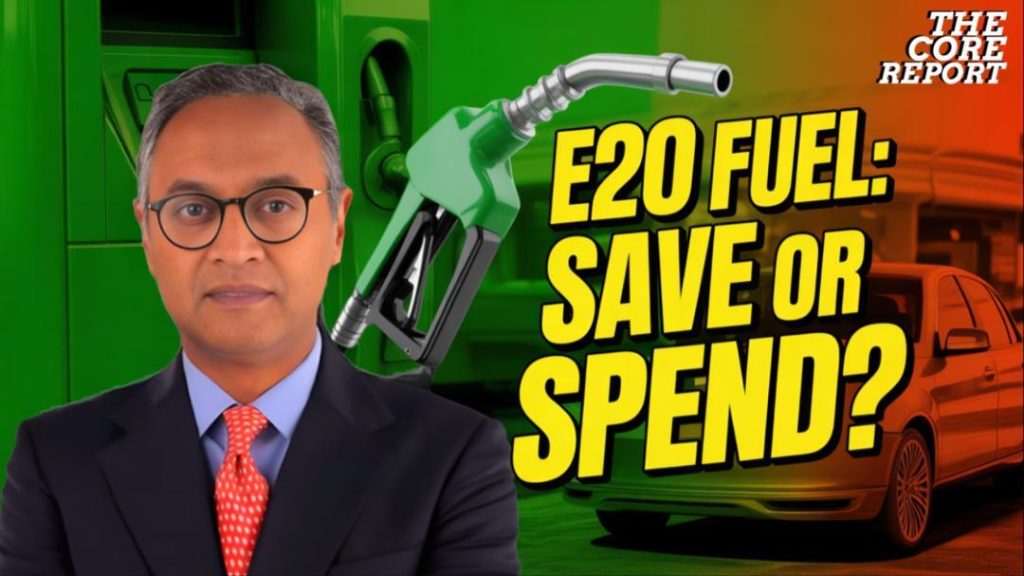
E20 Fuel in India: Benefits, Risks, and What Vehicle Owners Must Know
As the world continues to grapple with the challenges of climate change, energy security, and economic growth, India has taken a significant step towards reducing its carbon footprint by introducing E20, a petrol blend comprising 20% ethanol. The government’s plan to phase out fossil fuels and transition to cleaner energy sources is expected to have a profound impact on the environment, the economy, and the country’s energy security.
In this post, we will delve into the benefits and risks associated with E20 fuel, what vehicle owners need to know, and the implications of this shift for the automotive industry.
Benefits of E20 Fuel
The introduction of E20 fuel in India has several benefits, including:
- Reduced Carbon Emissions: E20 fuel produces 20% less carbon emissions than regular petrol, which is a significant step towards reducing the country’s carbon footprint.
- Energy Security: By blending ethanol with petrol, India is reducing its dependence on foreign oil imports, saving precious foreign exchange, and enhancing energy security.
- Supports Farmers: The E20 policy is expected to create a new market for sugarcane farmers, who will produce ethanol from sugarcane juice, thereby providing an additional source of income and supporting rural development.
- Improved Acceleration: Government studies have reported improved acceleration and better engine performance with E20 fuel, making it an attractive option for vehicle owners.
Risks and Concerns
Despite the benefits, there are risks and concerns associated with E20 fuel, particularly for older vehicles not designed for E20. These risks include:
- Engine Wear: E20 fuel can cause premature wear and tear on older vehicle engines, leading to increased maintenance costs and potential breakdowns.
- Fuel System Corrosion: The higher concentration of ethanol in E20 fuel can corrode fuel systems, fuel tanks, and engine components, leading to costly repairs.
- Mileage Loss: Older vehicles may experience reduced mileage due to the lower energy density of E20 fuel, which can impact fuel efficiency and increase fuel costs.
- Incompatibility: Not all vehicles are designed to run on E20 fuel, which can lead to engine problems, reduced performance, or even catastrophic failures.
What Vehicle Owners Must Know
For vehicle owners, it is essential to know the following:
- Check Your Vehicle’s Compatibility: Before switching to E20 fuel, check your vehicle’s manufacturer specifications to ensure it is compatible with E20 fuel.
- Use the Right Fuel: Use E20 fuel specifically designed for your vehicle type, as regular petrol or other fuel blends may not provide the same benefits and may cause engine problems.
- Regular Maintenance: Regular maintenance is crucial to ensure your vehicle runs smoothly and efficiently on E20 fuel. Check your vehicle’s oil, filters, and other components regularly.
- Look for E20-Compliant Vehicles: By 2025, all new vehicles will be E20-compliant, making it easier for vehicle owners to adapt to the new fuel blend.
Implications for the Automotive Industry
The transition to E20 fuel has significant implications for the automotive industry, including:
- Increased Demand for E20-Compliant Vehicles: As the government phases out fossil fuels, demand for E20-compliant vehicles will increase, driving growth and innovation in the industry.
- New Business Opportunities: The E20 policy will create new opportunities for companies involved in the production and distribution of ethanol, as well as for startups and entrepreneurs.
- Skills Training: The industry will need to upskill and reskill workers to adapt to the new fuel blend, ensuring a seamless transition and minimizing job losses.
- Infrastructure Development: The expansion of E20 fuel infrastructure will require significant investments in storage, transportation, and retail networks, creating jobs and stimulating local economies.
Conclusion
The introduction of E20 fuel in India is a significant step towards reducing carbon emissions, boosting energy security, and supporting farmers. While there are risks and concerns associated with E20 fuel, particularly for older vehicles, the benefits far outweigh the drawbacks. By understanding the benefits, risks, and what vehicle owners must know, India can successfully transition to cleaner energy sources and achieve its sustainability goals.
Source: https://youtu.be/zM_EyWPyliQ






